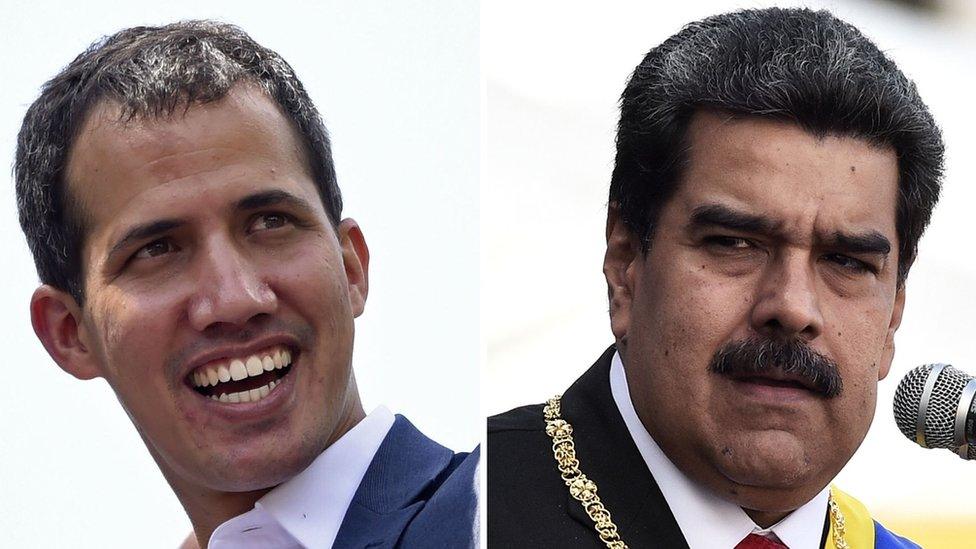Canada suspends operations at its Venezuela embassy
- Published
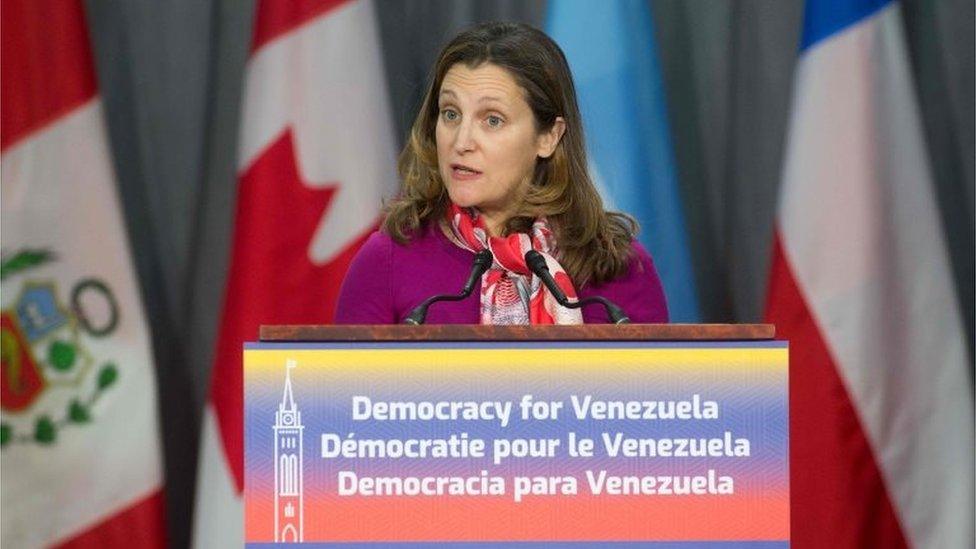
The decision to close the embassy was announced by Foreign Minister Chrystia Freeland
Canada has announced that it is shutting its embassy in the Venezuelan capital Caracas temporarily.
The reason, it says, is that President Nicolás Maduro's Venezuelan government has "taken steps to limit the ability of foreign embassies to function".
Canada is one of more than 50 nations that recognise opposition leader Juan Guaidó as Venezuela's acting president.
Canadians in Venezuela will now have to travel to neighbouring Colombia for consular assistance.
Allow X content?
This article contains content provided by X. We ask for your permission before anything is loaded, as they may be using cookies and other technologies. You may want to read X’s cookie policy, external and privacy policy, external before accepting. To view this content choose ‘accept and continue’.
'No choice'
Canadian Foreign Minister Chrystia Freeland said her government had been "left with no choice" because Canadian diplomats' visas were expiring at the end of the month.
She said the visa could not be renewed as Canada was "no longer in a position to obtain diplomatic accreditation under the Maduro regime".
In March, the US withdrew all its diplomatic staff from Venezuela citing the "deteriorating situation" in the Latin American country.
In a statement, Ms Freeland said Canada was "also evaluating the status of Venezuelan diplomats, external appointed by the Maduro regime to Canada".
She said that Canada would "continue to stand up for the rights of the Venezuelan people and for a full return to democracy in Venezuela".

Read more about Venezuela's crisis:

Canada is a key member of the Lima Group, a regional bloc which was set up in 2017 with the aim of finding a solution to the crisis in Venezuela.
Its members have called for President Maduro, whom they accuse of leading an "illegitimate and dictatorial regime", to step down.
Mr Maduro accuses the Lima Group of conspiring with the US and opposition groups in Venezuela to overthrow him.
How did it come to this?
Venezuela is engulfed in a political crisis with two rival politicians - President Maduro and National Assembly leader Juan Guaidó - claiming to be the country's legitimate leader.
Mr Guaidó has been recognised by more than 50 countries, including Canada, the US and most in Latin America, but Mr Maduro retains the loyalty of most of the military and important allies such as China and Russia.
Venezuela crisis: The four countries interested in the presidential battle
On 30 April, Mr Guaidó led a failed attempt to spark a military rebellion against Mr Maduro, which the latter said was part of a US-orchestrated coup.
Since then, close allies of Mr Guaidó have been arrested. While his parliamentary immunity has been lifted, he has so far not been jailed.
What's the situation on the ground?
Under the Maduro government, the economy has collapsed and shortages of food and medicines have become widespread.
According to the United Nations refugee agency, external (UNHCR), there are about 3.7 million refugees and migrants from Venezuela worldwide.
In part s of the oil-rich country, fuel has become scarce and drivers queue for days at petrol station. There are also frequent blackouts.
What are the real reasons behind Venezuela’s blackouts?
There have also been protests by medical personnel and concerned relatives after at least six children died in less than a month at a hospital in Caracas. The families blamed severe shortages of medicines and equipment for their deaths.
The government says the shortages are caused by US sanctions. The opposition argues that they are the result of mismanagement and corruption by consecutive socialist governments.
- Published30 May 2019
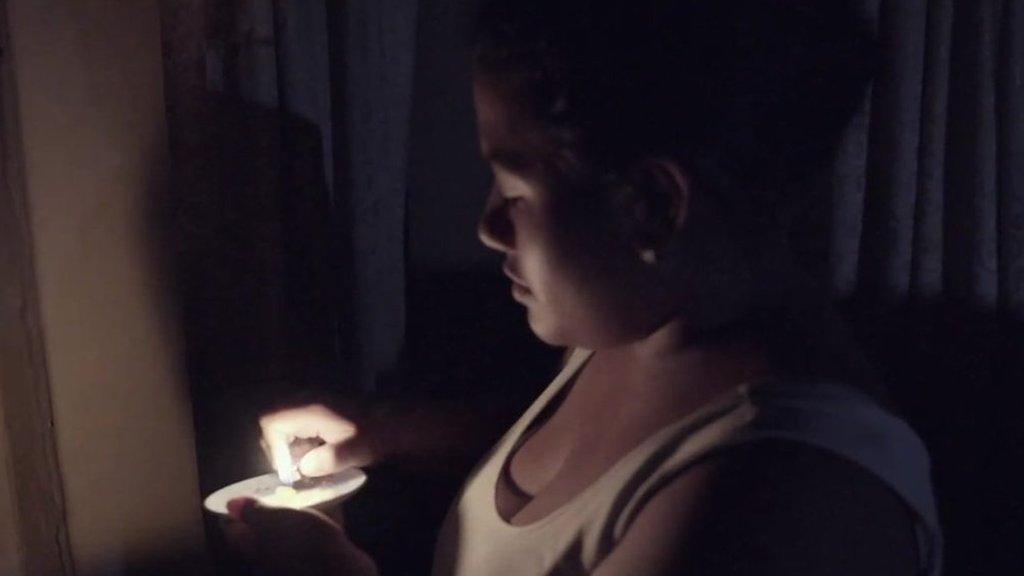
- Published14 May 2019
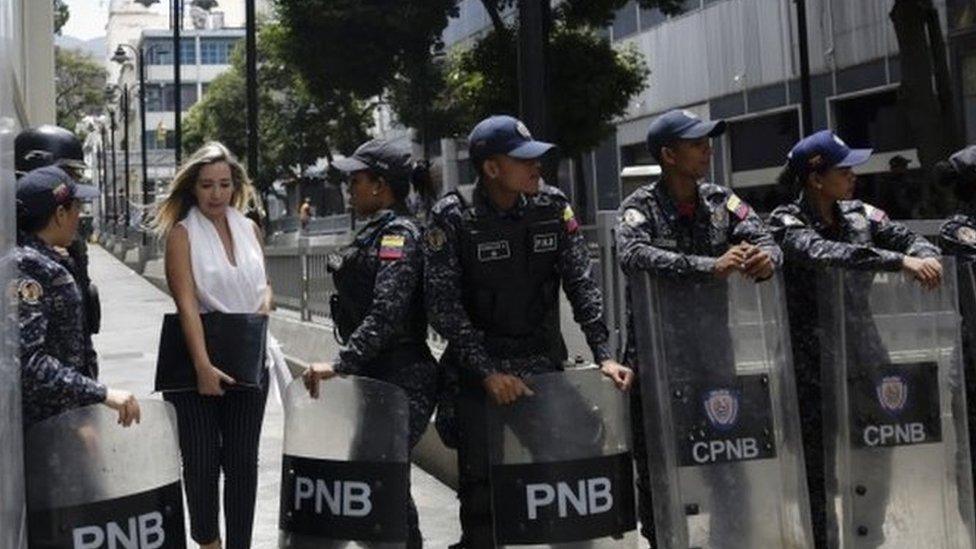
- Published16 May 2019
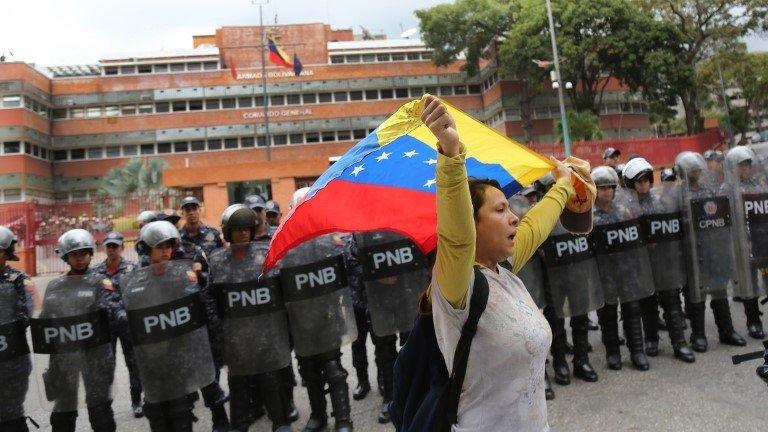
- Published21 May 2019
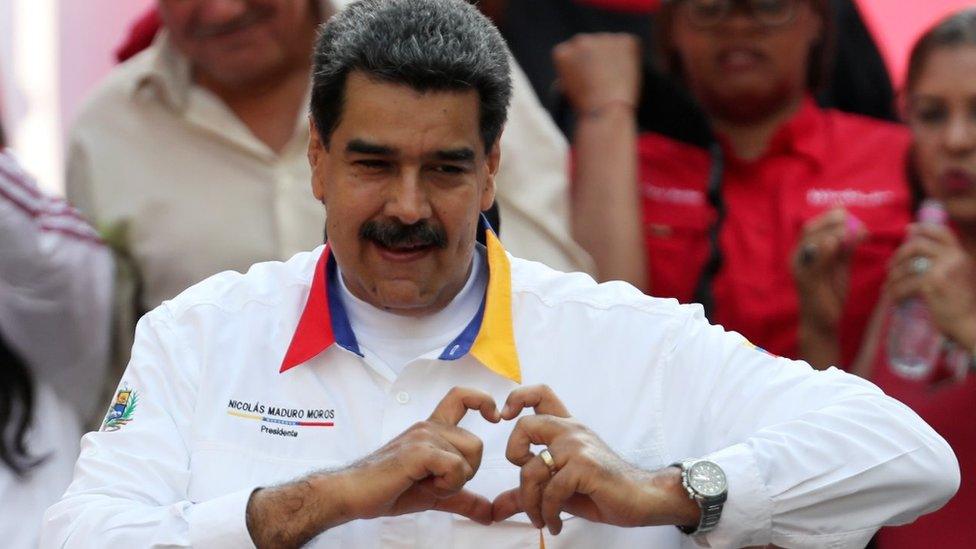
- Published26 May 2019
